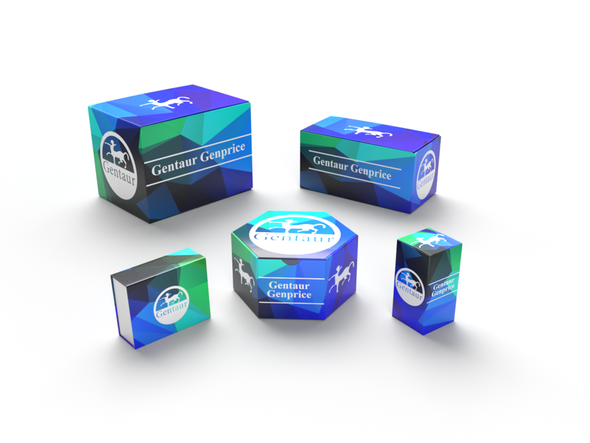BW
p27 Kip1 (phospho-T187) polyclonal Antibody | BS4838
- SKU:
- BW-BS4838
- Availability:
- Usually ships in 5 working days
Description
p27 Kip1 (phospho-T187) polyclonal Antibody | BS4838 | Gentaur UK, US & Europe Distribution
Host: Rabbit
Reactivity: Human,Mouse,Rat
Application: IHC
Application Range: IHC: 1:50~1:200
Background: Cell cycle progression is regulated by a series of cyclin-dependent kinases that consist of catalytic subunits, designated Cdks, and activating subunits, designated cyclins. Orderly progression through the cell cycle requires the activation and inactivation of different cyclin-Cdks at appropriate times. A series of proteins has been recently described that function as “mitotic inhibitors.” These include p21, the levels of which are elevated upon DNA damage in G1 in a p53-dependent manner, p16 and a more recently described p16 related inhibitor designated p15. A p21 related protein, p27, has been described as a negative regulator of G1 progression and has been speculated to function as a possible mediator of TGFβ-induced G1 arrest. p27 interacts strongly with D-type cyclins and Cdk4 in vitro and to a lesser extent with cyclin E and Cdk2.
Storage & Stability: Store at 4°C short term. Aliquot and store at -20°C long term. Avoid freeze-thaw cycles.
Specificity: p-p27 Kip1 (T187) polyclonal Antibody detects endogenous levels of p27 Kip1 protein when phosphorylated at Thr187.
Molecular Weight: ~ 27 kDa
Note: For research use only, not for use in diagnostic procedure.
Alternative Names: Cyclin-dependent kinase inhibitor 1B; Cyclin-dependent kinase inhibitor; p27; p27Kip1; CDKN1B; KIP1
Immunogen: Synthetic phosphopeptide derived from human p27 Kip1 around the phosphorylation site of Threonine 187.
Conjugate: Unconjugated
Modification: Phosphorylation
Purification & Purity: The Antibody was affinity-purified from rabbit antiserum by affinity-chromatography using epitope-specific immunogen and the purity is > 95% (by SDS-PAGE) .
Pathway: NF-kB Signaling,










